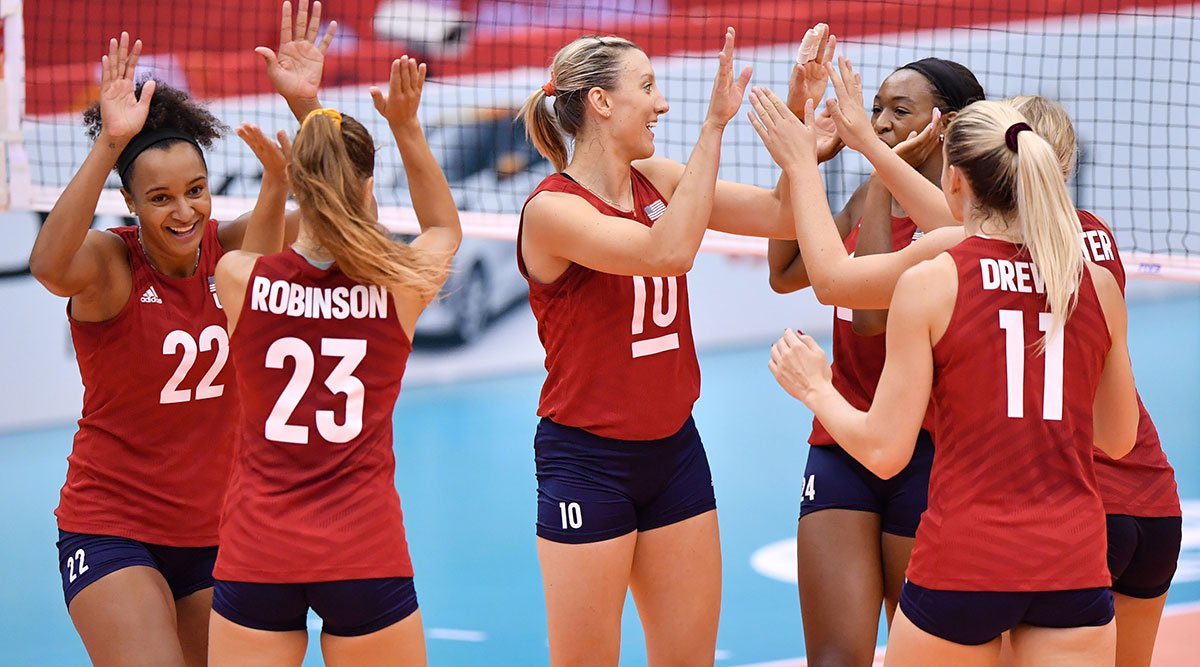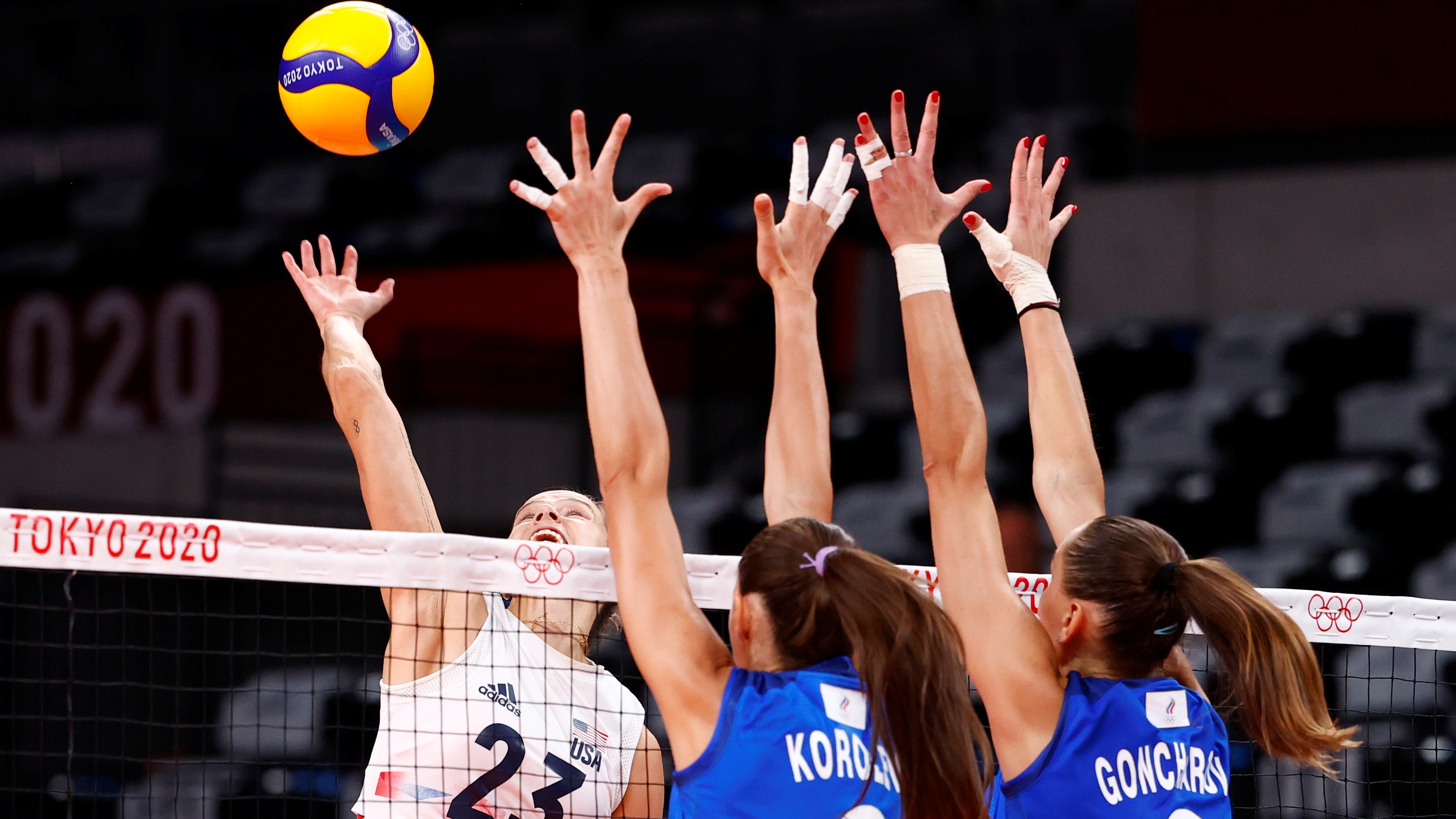History and Evolution of Women’s Volleyball at the Olympics

The story of women’s volleyball at the Olympics is one of incredible growth and evolution, from its humble beginnings to its status as a global powerhouse. This journey has been marked by groundbreaking moments, rule changes, and the rise of iconic athletes who have left an indelible mark on the sport.
Early Days and Inclusion in the Olympics
Women’s volleyball emerged in the 19th century as a recreational activity, gaining popularity in physical education classes and community centers. The sport’s formalization began in the 1940s with the establishment of international organizations like the Federation Internationale de Volleyball (FIVB). The inclusion of women’s volleyball in the Olympic Games was a significant milestone, reflecting the sport’s growing popularity and recognition. Women’s volleyball debuted at the 1964 Tokyo Olympics, where the Soviet Union claimed the first gold medal. This marked the beginning of a thrilling chapter in the sport’s history, setting the stage for decades of international competition and athletic excellence.
Evolution of Rules and Playing Style
The rules and playing style of women’s volleyball have undergone significant transformations over the years. Initially, the game was characterized by a slower pace and emphasis on strategic play. However, as the sport evolved, rule changes aimed at increasing the pace and excitement of the game were implemented.
- The introduction of the libero position in 1996 revolutionized defensive strategies, allowing teams to employ specialized defensive players who could aggressively cover the court.
- The implementation of rally scoring in 1998 changed the game’s dynamics, making every point crucial and encouraging teams to be more aggressive in their attacks.
- The development of specialized techniques, such as the jump serve and the powerful spike, has further transformed the game, leading to a more dynamic and visually captivating style of play.
Key Moments and Events
Throughout its Olympic history, women’s volleyball has been marked by several pivotal moments and events that have shaped the sport’s trajectory.
- The rise of the Soviet Union and Cuba as dominant forces in the 1960s and 1970s established a high level of competition and paved the way for the emergence of other strong volleyball nations.
- The dominance of the United States and China in the 1990s and 2000s marked a shift in the sport’s landscape, showcasing the growing strength of Asian and North American teams.
- The emergence of Brazilian volleyball in the 21st century, with its emphasis on flair and athleticism, has brought a new dimension to the game, inspiring a new generation of players.
Notable Teams and Players in Women’s Olympic Volleyball: Womens Volleyball Olympics

The Olympic Games have witnessed a dazzling array of talent in women’s volleyball, with teams and players leaving an indelible mark on the sport’s history. From the dominant forces of the Soviet Union and Cuba to the rise of China and the United States, the competition has been fierce and inspiring. This section explores the achievements of some of the most successful teams and players who have graced the Olympic stage.
Most Successful Teams in Olympic History
The Olympic volleyball tournament has seen numerous teams achieve remarkable success, with some consistently dominating the competition. The following teams have left an undeniable legacy in the history of women’s Olympic volleyball:
- Soviet Union: The Soviet Union was a powerhouse in women’s volleyball for decades, winning three consecutive Olympic gold medals from 1964 to 1972. Their dominant style of play, characterized by powerful attacks and strong blocking, made them a formidable force on the court.
- Cuba: Cuban volleyball has a rich tradition, with the women’s team winning three Olympic gold medals (1992, 1996, 2000) and consistently finishing on the podium. Their athleticism, technical skills, and passionate playing style have made them a fan favorite.
- China: China’s rise to prominence in women’s volleyball began in the 1980s, and they have since become a major force on the international stage. The team has won three Olympic gold medals (1984, 2004, 2016), showcasing a combination of power, precision, and tactical intelligence.
- United States: The United States women’s volleyball team has emerged as a global powerhouse in recent years, winning two consecutive Olympic gold medals (2008, 2012) and consistently challenging for the title. Their athleticism, versatility, and innovative playing style have made them a formidable opponent.
Legendary Players: Lang Ping, Misty May-Treanor, and Kerri Walsh Jennings
The history of women’s Olympic volleyball is filled with legendary players who have inspired generations of athletes. Among the most iconic figures are Lang Ping, Misty May-Treanor, and Kerri Walsh Jennings.
- Lang Ping (China): Lang Ping, known as the “Iron Hammer,” is a legendary player and coach who has left an enduring mark on women’s volleyball. As a player, she led China to its first Olympic gold medal in 1984, and later became a successful coach, leading China to Olympic gold in 2016. Her powerful attacks and tactical acumen have earned her worldwide recognition and respect.
- Misty May-Treanor (United States): Misty May-Treanor is considered one of the greatest beach volleyball players of all time. Partnering with Kerri Walsh Jennings, she dominated the sport for over a decade, winning three consecutive Olympic gold medals (2004, 2008, 2012). Their athleticism, power, and strategic brilliance made them an unstoppable force on the sand.
- Kerri Walsh Jennings (United States): Kerri Walsh Jennings, alongside Misty May-Treanor, formed the most successful beach volleyball duo in history. She has won four Olympic gold medals (2004, 2008, 2012, 2016), showcasing her incredible athleticism, competitive spirit, and unwavering determination.
Playing Styles and Strategies
The playing styles and strategies employed by different teams and players have evolved significantly over the years. The traditional European style, characterized by precise passing and setting, has been challenged by the more athletic and powerful styles of teams from North and South America.
- European Style: European teams have historically been known for their technical precision and tactical discipline. They often rely on a strong defense and consistent passing to set up their attackers. The European style emphasizes teamwork and communication, with players working together to execute complex plays.
- North American Style: North American teams have become increasingly known for their athleticism and powerful attacks. They often employ a fast-paced style of play, with players using their speed and agility to create scoring opportunities. North American teams are also known for their aggressive blocking and serving, which can disrupt the opponent’s rhythm.
- South American Style: South American teams have developed a unique playing style that combines athleticism, passion, and technical skills. They are known for their powerful attacks, aggressive blocking, and strong defensive play. South American teams often play with a high level of emotion and intensity, which can be both inspiring and intimidating for their opponents.
Impact and Significance of Women’s Volleyball in the Olympics

The Olympic Games serve as a global stage where athletes showcase their skills, passion, and dedication. Women’s volleyball, a sport that has captivated audiences worldwide, has left an indelible mark on the Olympic movement. It has transcended its athletic boundaries, becoming a symbol of empowerment, athleticism, and cultural exchange.
Global Popularity and Cultural Influence
Women’s volleyball has garnered immense popularity across the globe, captivating audiences with its fast-paced action, strategic gameplay, and athleticism. The sport’s popularity has fostered a vibrant culture, creating a passionate community of players, coaches, and fans. The Olympic Games, with their global reach, have played a pivotal role in amplifying the sport’s influence.
- The sport’s captivating gameplay, characterized by powerful spikes, strategic blocking, and precise passing, has attracted a global following. Fans from all corners of the world gather to cheer for their favorite teams and players, creating a vibrant atmosphere that transcends language barriers.
- The Olympics have provided a platform for the sport’s growth and development. The global exposure and prestige associated with the Games have inspired aspiring athletes and sparked interest in the sport in new regions. The impact of the Olympics has been particularly evident in countries where volleyball is not traditionally a dominant sport.
- The sport’s global appeal has contributed to cultural exchange and understanding. Athletes from diverse backgrounds come together to compete, fostering mutual respect and appreciation for different cultures. The Olympics have created a space where athletes and fans from different countries can connect through their shared passion for the sport.
Role in Promoting Gender Equality and Athleticism, Womens volleyball olympics
Women’s volleyball has played a significant role in promoting gender equality and athleticism. The sport has provided a platform for women to showcase their athletic abilities and challenge traditional gender roles. The Olympic Games have been instrumental in amplifying this message, highlighting the achievements of female athletes and inspiring generations of girls to pursue their athletic dreams.
- The sport’s focus on teamwork, strategy, and athleticism challenges the stereotype that women are not physically capable or competitive. Women’s volleyball has demonstrated that women can excel in physically demanding sports and compete at the highest level.
- The success of women’s volleyball teams at the Olympics has inspired young girls to pursue their athletic dreams. Seeing female athletes compete on a global stage has fostered a belief that girls can achieve anything they set their minds to, regardless of gender.
- The Olympic Games have provided a platform for women’s volleyball to advocate for gender equality in sports. The Games have highlighted the importance of providing equal opportunities for women in sports, promoting gender equality and challenging discrimination.
Inspiring Athletes and Fans Around the World
Women’s volleyball has inspired countless athletes and fans around the world. The stories of dedication, perseverance, and teamwork displayed by athletes on the court have resonated with audiences, leaving a lasting impact on their lives.
- The stories of Olympic volleyball players, such as the legendary Lang Ping, who led the Chinese women’s team to multiple Olympic victories, have inspired generations of athletes. Their achievements have demonstrated that hard work, dedication, and a passion for the sport can lead to extraordinary success.
- The sport’s focus on teamwork and camaraderie has resonated with fans, creating a sense of community and shared experience. The Olympic Games have brought together fans from all walks of life, united by their love for the sport and admiration for the athletes.
- The spirit of competition and sportsmanship displayed by volleyball players has inspired fans to embrace a positive attitude towards competition and to strive for excellence in all aspects of their lives.
Womens volleyball olympics – The Women’s Volleyball Olympics is a global stage where the world’s best athletes compete for ultimate glory. Brazil, a powerhouse in the sport, has consistently dominated the competition, and to understand their strength, it’s essential to delve into the brazil women’s volleyball team roster 2024.
This roster showcases a blend of experienced veterans and rising stars, each contributing their unique skills to the team’s overall success. The Olympics, therefore, becomes a platform where Brazil’s volleyball prowess is put to the test, and the world watches with anticipation.
The Women’s Volleyball Olympics has seen many talented teams compete for gold, but the USA has consistently been a force to be reckoned with. Their history of strength and growth is evident in their consistent performance on the world stage.
You can read more about the rise of women’s volleyball usa and their impact on the sport. The USA’s success is a testament to the dedication and skill of its players, and their continued dominance in the Olympics is a source of pride for American volleyball fans.
